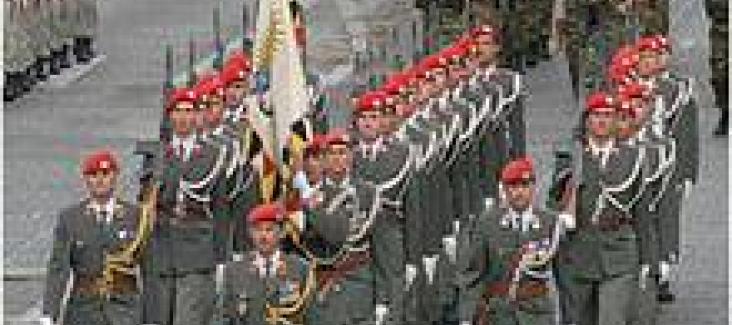The referendum goes back to 2010 when lord mayor of Vienna, Michael Häupl (SPÖ, Socialist Party Austria), demanded to hold a referendum on the future of Austria's army during the municipal election campaign. Austria is one out of five EU countries (also Denmark, Estonia, Finland and Greece) that have military conscription. At present, all Austrian men aged up to 35 years are called to duty for a six-month military service or for a one-year civilian service with social organisations.
With the referendum scheduled for Sunday, the Austrian government puts a question to the people itself cannot decide since the grand coalition parties of ÖVP and SPÖ are fundamentally opposed in this matter: The Austrian’s People Party (ÖVP) is in favour of military conscription whereas the Socialist Party wants to introduce a professional army.
Proposed by the government and adopted by the parliament, the referendum is a people’s consultation (“Volksbefragung”) according to Article 49b of the Austrian constitution. The result is legally non-binding, giving the governing parties the option to ignore the result.
In addition, in case Austria’s electorate and government decide to introduce a professional army, a change of the Austrian constitution will be required by a majority of two thirds of the Austrian parliament (“Nationalrat”). However, the coalition parties ÖVP and SPÖ do not have a two third majority. Hence, for military conscription to be abolished in Austria, votes by the opposition parties will be required.
In Austrian modern history there has been one referendum so far: In June 1994 two thirds of Austrian voters decided for membership in the European Union by referendum. The people's enquiry on military conscription is the first referendum on domestic affairs in Austria.
Democracy International will be in Austria at the upcoming weekend in order to monitor the referendum procedure. Together with its partner organisations mehr demokratie!austria and Mehr Demokratie Germany, Democracy International will present the results of the monitoring at a press conference, to take place in Vienna on Tuesday, 22 January, at 9.00 am (Café Prückel, Stubenring 24).
Text by Cora Pfafferott

